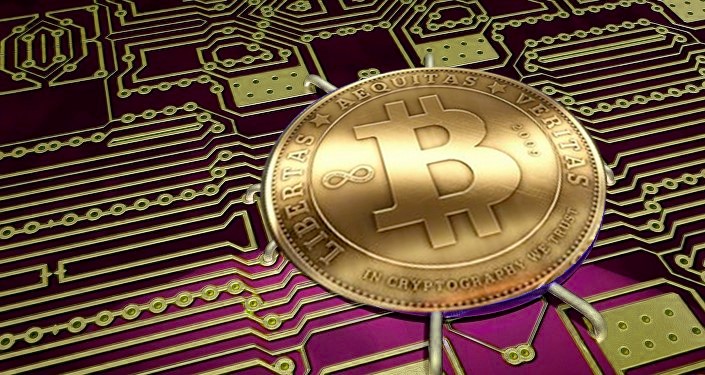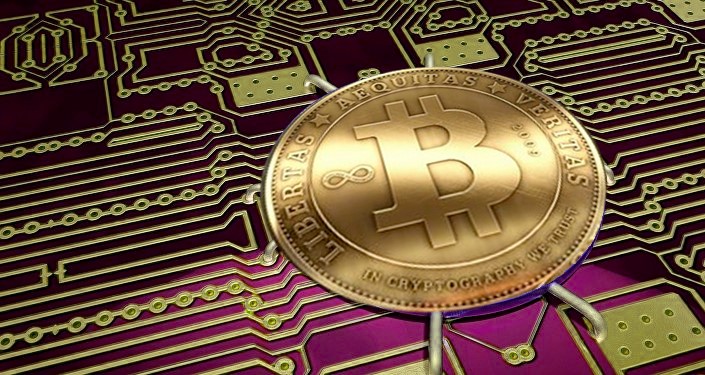Why Bitcoin has value
It's an elegant replacement for the entire concept of money.
Thomas Frey //January 19, 2017//


Why Bitcoin has value
It's an elegant replacement for the entire concept of money.
Thomas Frey //January 19, 2017//

(Editor's note: This is the second of two parts. Read Part One.)
Normally, we can apply some form of supply-and-demand equation to virtually any commodity and we can gain a sense of its value. But Bitcoin is different.
Since our societies rely heavily on trade and commerce, anything that facilitates the exchange of goods and services has some degree of value.
In the past farmers would farm, fishermen would fish, and widget-makers would make widgets. But trading fish for widgets, or trading grain for fish was a messy and inefficient way to conduct a transaction. For this reason currencies were invented.
By agreeing on one intermediate commodity, say silver coins, we only need to pay attention to the number of silver coins involved in every transaction.
But silver has its own set of problems, especially when we’re dealing with very small or very large transactions. On one hand they’re not easily divisible, on the other, they’re not easily manageable.
Bitcoin has a way of solving all those problems.
Today’s monetary systems are old and tired, with so many patches in place that even the patches have patches.
We previously patched our problems with gold and silver by introducing paper bank notes. We patched further problems by removing the precious metal backing those bank notes, and then patched them again to allow wire transfers, credit cards, debit cards, direct deposit and online bill pay. All the cornerstones of modern life are just patches on patches inside a prehistoric system.
Every IT guy knows that from time to time you have to take drastic measures and scrap the old system and build a new one from scratch.
So what would happen if we scrapped our decaying old financial systems along with the barnacle-people making absurd profits by maintaining them? That is exactly what Bitcoin was intended for.
Bitcoin isn’t another bank or payment processor coming up with new ways to move old dollars. Bitcoin is instead a simple and elegant replacement for the entire concept of money. It has value for exactly the same reason as the paper money in your wallet: It simplifies the exchange of goods and services.
So let’s go back to the original question, “Why does Bitcoin have value?” We can answer that in two words – network effect.
The network effect is a fascinating way of explaining why networked products and services tend to have more value when more people use them. The most common example is the telephone. During its early days when few people had access to telephones, and therefore its value was minimal. Today practically everyone has a phone, so its utility and value is extraordinarily high. In a similar fashion the value of Bitcoin is directly tied to its number of users and the frequency of their use.
As the usability of Bitcoin increases, its user base will grow, and its value will increase exponentially.
The Overall Size of the Bitcoin Universe
Several years ago, an architect working on dome houses explained to me why the dome shape always comes across as an optical illusion. “When people walk into a room, their eyes unconsciously look for the corners of the room to gain a sense of perspective about the size of space they’re walking into,” he said.
Without corners, a dome will appear abnormally smaller from the outside and strangely larger from the inside.
This paradoxical perspective has forced me to constantly “search for the corners of the room” with every new situation, technology, and system, and in this case, gain an inside and outside perspective about the size and shape of the Bitcoin universe.
There are a total of 21 million Bitcoins in the Bitcoin universe. While most currencies are loaned into existence, Bitcoins are mined into existence, a complex process requiring increasingly vast amounts of computing power, cryptic algorithms, and a bit of luck.
Through this mining process, over two thirds of all Bitcoins have already been mined into existence, an activity that, over time, becomes exponentially more difficult to accomplish.
With 21 million possible, if each Bitcoin is worth $1,000, the total Bitcoin universe becomes valued at $21 billion.
To individuals, this seems like a huge number. But to countries like the U.S., China, and India, with a gross domestic product (GDP) of $18 trillion, $21 trillion, and $9 trillion respectively, a number like $21 billion is little more than a fly on the backside of an elephant.
At the same time, $21 billion is the equivalent to the GDP of Jamaica, Armenia or Tajikistan.
However, every Bitcoin can be subdivided into 100 million bits, a tiny slice of currency known as 1 Satoshi. If each Satoshi grew in value to become worth $1 USD, then the entire Bitcoin universe would expand in value to $2,100 trillion, an incomprehensively large number that would overpower most national currencies.
If we actually moved up the valuation scale from $21 billion to $2,100 trillion, naturally a number of world-changing seismic shifts will occur.

Bitcoin and the surprising “disturbance in the force” that will accompany it
With Bitcoin, as its network effect climbs the exponential value chain; we will witness a series of disruptions. Every level of disruption will involve some level of psychological turmoil, economic turmoil, and growing national hostilities.
Venture Capitalist Tim Draper predicts that Bitcoin will hit $10,000 by 2018. That means the Bitcoin universe will expand from $21 billion to $210 billion.
In a similar fashion to the way stocks divide, leapfrog jumps in valuation will empower new technologies and new investors at the same time.
While it’s true that faster money will create a better economy, Bitcoin will find ways to route transactions around today’s power brokers and remove some influential people from tomorrow’s revenue streams. For this reason many will feel betrayed or left out of the inner circles, and a new age of monetary skirmishes will ensue.
Here are some possible implications with each 10X increase in value. When Bitcoin reaches:
- $1,000 – Many new currency-related technologies will spring to life. We’re seeing this now.
- $10,000 – Bitcoin becomes the global standard for ecommerce. A high percentage of gold holders will switch to Bitcoin. Most of today’s banks will begin to disappear as new institutions arise.
- $100,000 – Most countries will establish Bitcoin reserves, and will attempt to tie their national currencies to the value of Bitcoin.
- $1,000,000 – Bitcoin will be universally acknowledged as the first global currency and spawn a series of complementary currencies.
- $10,000,000 – Most global infrastructure projects will be financed through Bitcoin.
Admittedly it’s not feasible to develop a realistic list like this with any level of confidence because of the tectonic plate-shifting changes that will accompany each of Bitcoin’s exponential leaps in value.
It may even collapse under its own weight.
However, what will become glaringly clear along the way are all the deficiencies we have with today’s economic systems.
Final Thoughts
Bitcoin has become the flag bearer for an emerging cryptocurrency industry with literally thousands of players waiting in the wings.
There is little doubt in my mind that Bitcoin will achieve lofty valuations in the future. How high and how fast still remains a fascinating topic for debate and I’d love to hear your thoughts.
Will your financial future be controlled by Bitcoin?






















